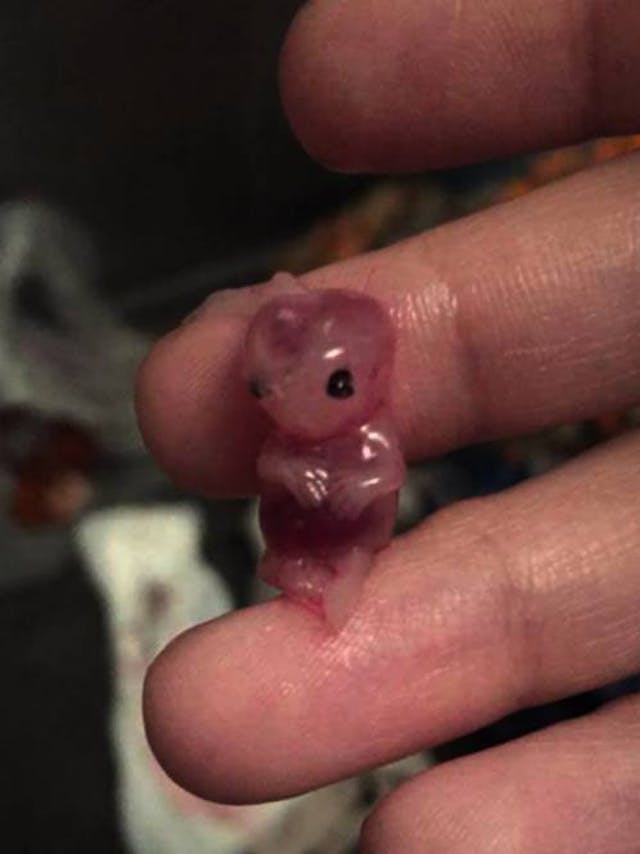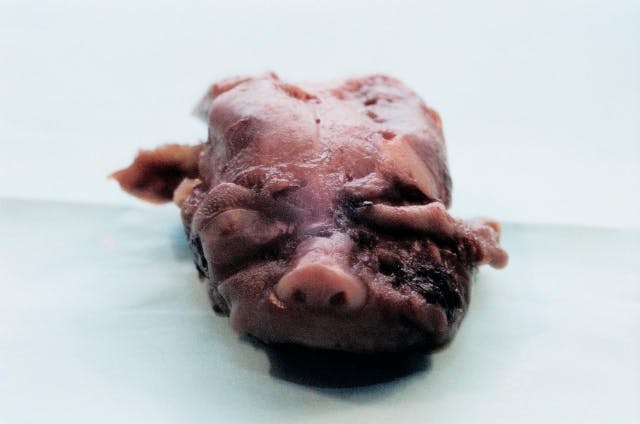
INSANITY: The media continues to lie about D&Cs and pro-life laws
Nancy Flanders
·
Abortion is always wrong… even if you don’t regret it
Since the extremely flawed Turnaway Study was released in 2020, pro-abortion organizations and media outlets have cited it to falsely claim that women don’t regret abortions, and that women who are denied them fare worse than women who do have abortions. In addition to researcher bias, the study was severely limited with a skewed sample size. The media also failed to report that the study actually found that only 4% of women who were denied abortions still wished they had had one five years later. That would mean that 96% of women who were denied abortions were glad about it.

Whether or not women regret their abortions, however, has no bearing on whether or not abortion is a right or an ethical act.
WARNING: Graphic images of abortion victims below.
The reality is that abortion is unethical whether or not women regret their induced abortions, and one’s feelings certainly don’t determine whether abortion is a right. The same is true when women say they felt “lifted” or “empowered” by their abortions. Those feelings do not make it right, just as no unethical act can be made ethical based on the feelings of the person who carried it out. Killing innocent human beings is always wrong, regardless of how powerful it made the perpetrator feel, or whether or not the perpetrator had any remorse. Preborn humans — human zygotes, human embryos, human fetuses — are members of the human species and are innocent. Therefore, killing them is always wrong.
And no one, regardless of a court ruling or a law, has the right to cause harm and death to another living, innocent human being. Pro-life laws protecting human beings from abortion do not violate anyone’s rights; however, pro-abortion laws do violate the most basic human right that no law or judge can take away — the right to life.
Many women do deeply regret their abortions and live the rest of their lives in pain over that decision. But even if all the research in the world said that women don’t regret their abortions, it wouldn’t make them acceptable.
No lack of remorse can change what abortion does and who it harms. Every procedure carries the intent of killing a preborn human being. That’s what differentiates induced abortion from other ways a pregnancy can end. Induced preterm delivery is not an abortion if the intent is to preserve life and not kill. Surgery for ectopic pregnancy, treatment for a miscarriage, and c-sections are not induced abortions. Only if the intent is to produce a dead child is the act considered an induced abortion and therefore, only those acts of intentional killing are prohibited by pro-life laws.
An induced abortion includes the use of the abortion pill, a D&C suction procedure, a D&E dismemberment procedure, and an induction procedure in order to end the life of the preborn child. The abortion pill kills by depriving the growing preborn human of nutrients and forcing the uterus to contract in order to expel the tiny body. As seen in the video below, the abortion pill is not as simple and safe as advocates claim.

Article continues below
Dear Reader,
In 2026, Live Action is heading straight where the battle is fiercest: college campuses.
We have a bold initiative to establish 100 Live Action campus chapters within the next year, and your partnership will make it a success!
Your support today will help train and equip young leaders, bring Live Action’s educational content into academic environments, host on-campus events and debates, and empower students to challenge the pro-abortion status quo with truth and compassion.
Invest in pro-life grassroots outreach and cultural formation with your DOUBLED year-end gift!
A dilation and curettage (D&C) procedure, though frequently used to remove an already miscarried child, can also be used to kill a preborn child in the first trimester. This procedure is only prohibited by pro-life laws when it is used to cause a preborn child’s death. As seen in the video below, using powerful suction, the preborn child and pregnancy tissue are pulled from the uterus and often made unrecognizable in the process.

A dilation and evacuation (D&E) procedure kills a preborn child in the second trimester by dismemberment. As seen in the video below, the child is killed when his or her arms and legs are torn from her torso, and her skull is crushed. This procedure usually takes two to three days, and would therefore be useless in an emergency situation to save the mother’s life. Though some abortionists do carry out D&E procedures on the same day, this has proven to be irresponsible and dangerous to women, and can cause an increased risk of future preterm delivery.

In an induction procedure, the preborn child in the third trimester — capable of surviving outside of the womb — is killed prior to delivery by a lethal injection of a drug meant to stop his or her heart. As seen in the video below, the goal is to ensure the child is stillborn.

These are some of the innocent human beings killed by abortion. Clearly, it doesn’t matter if their mother regrets killing them or not — it is still horrifically unethical and unjust to kill them. They each deserved what everyone deserves — the right to life and love. No one deserves to be killed so brutally and horrifically based on another person’s feelings or fears… least of all, innocent human children.





Live Action News is pro-life news and commentary from a pro-life perspective.
Contact editor@liveaction.org for questions, corrections, or if you are seeking permission to reprint any Live Action News content.
Guest Articles: To submit a guest article to Live Action News, email editor@liveaction.org with an attached Word document of 800-1000 words. Please also attach any photos relevant to your submission if applicable. If your submission is accepted for publication, you will be notified within three weeks. Guest articles are not compensated (see our Open License Agreement). Thank you for your interest in Live Action News!

Nancy Flanders
·
Guest Column
Emily Berning
·
Opinion
Nancy Flanders
·
Opinion
Mark Wiltz
·
Opinion
Mark Wiltz
·
Pop Culture
Madison Evans
·
Issues
Nancy Flanders
·
Human Interest
Nancy Flanders
·
Investigative
Nancy Flanders
·
Pop Culture
Nancy Flanders
·
Human Interest
Nancy Flanders
·